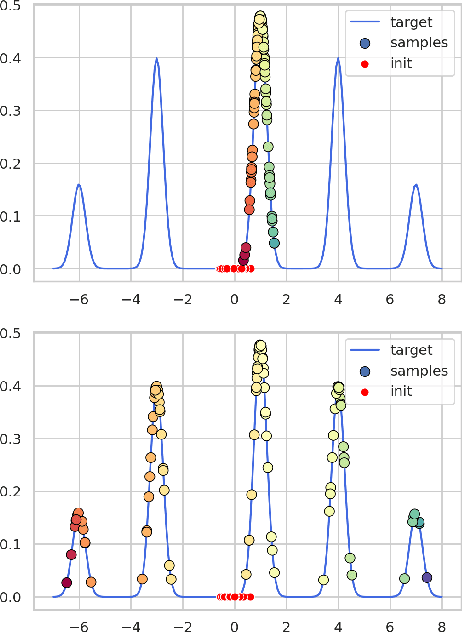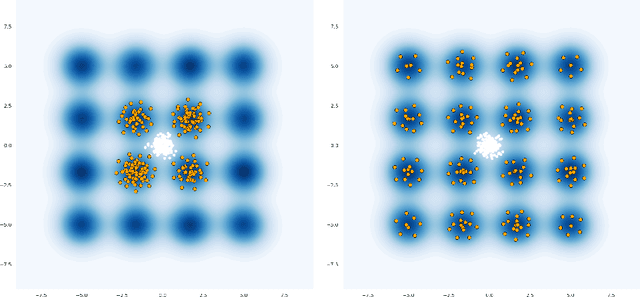Annealed Stein Variational Gradient Descent
Paper and Code
Feb 08, 2021



Particle based optimization algorithms have recently been developed as sampling methods that iteratively update a set of particles to approximate a target distribution. In particular Stein variational gradient descent has gained attention in the approximate inference literature for its flexibility and accuracy. We empirically explore the ability of this method to sample from multi-modal distributions and focus on two important issues: (i) the inability of the particles to escape from local modes and (ii) the inefficacy in reproducing the density of the different regions. We propose an annealing schedule to solve these issues and show, through various experiments, how this simple solution leads to significant improvements in mode coverage, without invalidating any theoretical properties of the original algorithm.
 Add to Chrome
Add to Chrome Add to Firefox
Add to Firefox Add to Edge
Add to Edge